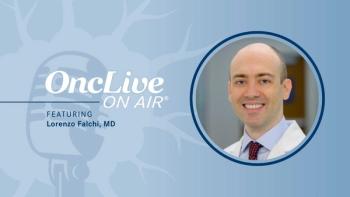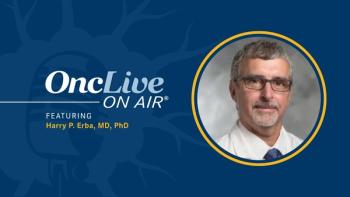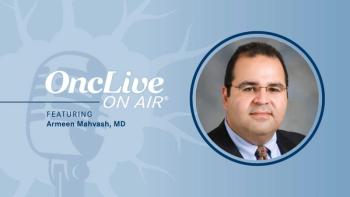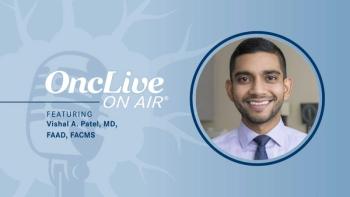
FDA Approval Insights: Perioperative Durvalumab for Resectable NSCLC

Drs Patel and Stiles discuss the significance of the FDA approval of perioperative durvalumab for patients with resectable non–small cell lung cancer.
Welcome to OncLive On Air®! I’m your host today, Ashling Wahner.
OncLive On Air is a podcast from OncLive®, which provides oncology professionals with the resources and information they need to provide the best patient care. In both digital and print formats, OncLive covers every angle of oncology practice, from new technology to treatment advances to important regulatory decisions.
In today’s episode, supported by AstraZeneca, we had the pleasure of speaking with Sandip P. Patel, MD, and Brendon M. Stiles, MD, about the FDA approval of perioperative durvalumab (Imfinzi) for patients with resectable non–small cell lung cancer (NSCLC). Dr Patel is a professor of medicine in the Department of Medicine at the University of California, San Diego. Dr Stiles is a professor of cardiothoracic surgery and chief of the Divisions of Thoracic Surgery and Surgical Oncology in the Department of Cardiothoracic & Vascular Surgery, as well as the associate director of Surgical Oncology at the Montefiore Einstein Comprehensive Cancer Center in Bronx, New York.
On August 15, 2024,
In our exclusive interview, Drs Patel and Stiles discussed the significance of this approval, key efficacy and safety findings from AEGEAN, and how the clinical use of perioperative treatment regimens reinforces the importance of involving multidisciplinary teams in every step of a patient’s treatment plan.
___
That’s all we have for today! Thank you for listening to this episode of OncLive On Air, supported by AstraZeneca. Check back on Mondays and Thursdays for exclusive interviews with leading experts in the oncology field.
For more updates in oncology, be sure to visit www.OncLive.com and sign up for our e-newsletters.
OncLive is also on social media. On X, follow us at @OncLive. On Facebook, like us at OncLive, and follow our OncLive page on LinkedIn.
If you liked today’s episode of OncLive On Air, please consider subscribing to our podcast on Apple Podcasts, Spotify, Amazon Music, and many of your other favorite podcast platforms,* so you get a notification every time a new episode is posted. While you are there, please take a moment to rate us!
Thanks again for listening to OncLive On Air.
*OncLive On Air is available on: Apple Podcasts, Google Podcasts, Spotify, Amazon Music, Audacy, CastBox, Deezer, iHeart, JioSaavn, Listen Notes, Player FM, Podcast Addict, Podchaser, RadioPublic, and TuneIn.




































